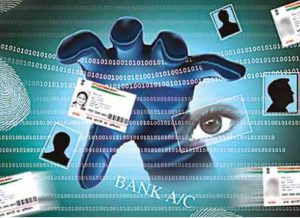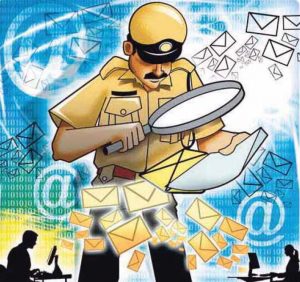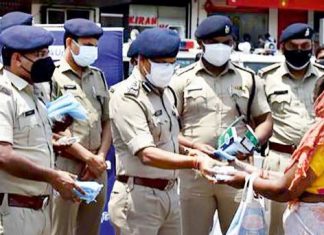 Intro –
Intro –
Cybercrime is a phenomenon that has disastrous consequences not only for large corporations but also for ordinary internet users. This crime can only be dealt with by the law. However, the main difficulty in enforcement is that such crimes are almost impossible to track.
Cybercrime is one of the biggest challenges facing mankind, and it is the greatest threat to every company in the world. Its impact on society is reflected in the numbers. It was predicted in August 2016 that cybercrime will cost the world $6 trillion annually by 2021, up from $3 trillion in 2015. This represents the greatest transfer of economic wealth in history, risks the incentives for innovation and investment, and will be more profitable than the global trade of all major illegal drugs combined. The cybercrime prediction stands, and over the past two-plus years, it has been corroborated by hundreds of major media outlets, academia, senior government officials, associations, industry experts, the largest technology and cyber security companies, and cybercrime fighters globally.
Cybercrime costs include damage and destruction of data, stolen money, lost productivity, theft of intellectual property, theft of personal and financial data, embezzlement, fraud, post-attack disruption to the normal course of business, forensic investigation, restoration and deletion of hacked data and systems, and reputational harm.
 India has witnessed a 457% rise in cybercrime incidents under the Information Technology (IT) Act, 2000 from 2011 to 2016, a recent ASSOCHAM-NEC joint study said. Symantec Corp ranked India among the top five countries to be affected by cybercrime. Between 2012 and 17, the number of internet users grew at a Compound Annual Growth Rate (CAGR) of 44%, of which India is placed third after the US and China.
India has witnessed a 457% rise in cybercrime incidents under the Information Technology (IT) Act, 2000 from 2011 to 2016, a recent ASSOCHAM-NEC joint study said. Symantec Corp ranked India among the top five countries to be affected by cybercrime. Between 2012 and 17, the number of internet users grew at a Compound Annual Growth Rate (CAGR) of 44%, of which India is placed third after the US and China.
Latest technologies usage like Artificial Intelligence, Big Data Analytics, Facial Recognition, IoT etc., to identify and catch suspects/criminals have gained much awareness among various law enforcement agencies. However, the implementation of these technologies is not on a national level but on a State level, which makes it crucial for the Central Government to fund and support State level law enforcement agencies to utilize technologies to upgrade their policing methods, noted the study.
The Indian Government and multiple law enforcement agencies have taken a lead in curbing growing cybercrime. State Governments and State Police are developing new anti-cybercrime measures and gathering methods to tackle it with the help of the Central Government and private organizations.
Other initiatives are establishing cybercrime labs, response centers, cyber forensic labs, etc., and training officers to identify and solve cybercrimes.
According to the latest government data, India has recorded a massive increase of 63.5% in cybercrime cases in 2019. The National Crime Record Bureau’s (NCRB) data stated that 44,546 cases of cybercrimes were registered in 2019 as compared to 28,248 in 2018.
Increase of Cybercrime in Metropolitan Cities
 The highest number of cybercrime cases were registered in Karnataka (12,020) closely followed by Uttar Pradesh (11,416), Maharashtra (4,967), Telangana (2,691), and Assam (2,231). Among the Union Territories, Delhi accounted for 78% of cybercrimes. According to the data, in 60.4% of cases, registered fraud was the motive, followed by sexual exploitation (5.1%) and causing disrepute (4.2%). As per the data, in metropolitan cities, a total of 18,372 cases were registered, showing an increase of 81.9%.
The highest number of cybercrime cases were registered in Karnataka (12,020) closely followed by Uttar Pradesh (11,416), Maharashtra (4,967), Telangana (2,691), and Assam (2,231). Among the Union Territories, Delhi accounted for 78% of cybercrimes. According to the data, in 60.4% of cases, registered fraud was the motive, followed by sexual exploitation (5.1%) and causing disrepute (4.2%). As per the data, in metropolitan cities, a total of 18,372 cases were registered, showing an increase of 81.9%.
The NCRB, which functions under the Union Home Ministry, is tasked with collecting and analysing crime data as defined by the Indian Penal Code and special and local laws in the country.
 Despite the cybercrime epidemic, technology promises to make the world a much safer place. Traffic authorities see nearly 300,000 lives saved over the next 10 years from a vast reduction in traffic fatalities using autonomous vehicle technology. Intel announced the largest security related acquisition last year, a whopping $15.3 billion acquisition of Mobileye, an Israeli automotive technology company focused on collision avoidance — with approximately 450 engineers and an installed base of nearly 15 million vehicles. Overall crime statistics could drop by more than 20% when metropolitan sensors and cutting-edge home security remote monitoring begin to work seamlessly together through the IoT. Cyber engineers and entrepreneurs globally are hard at work on new solutions to combat and reduce cybercrime. Hundreds of top cybersecurity companies are innovating cutting-edge products and creating new services in the war against cybercrime. A growing list of MSSPs (managed security service providers) are assuming responsibilities for the most daunting cyber risks faced by organizations of all sizes and types globally. Cybercrime is a natural outgrowth of the expanding cyber attack surface, and it should be expected. A realistic view of the risks and threats we face will help organizations and consumers do a better job of protecting themselves.
Despite the cybercrime epidemic, technology promises to make the world a much safer place. Traffic authorities see nearly 300,000 lives saved over the next 10 years from a vast reduction in traffic fatalities using autonomous vehicle technology. Intel announced the largest security related acquisition last year, a whopping $15.3 billion acquisition of Mobileye, an Israeli automotive technology company focused on collision avoidance — with approximately 450 engineers and an installed base of nearly 15 million vehicles. Overall crime statistics could drop by more than 20% when metropolitan sensors and cutting-edge home security remote monitoring begin to work seamlessly together through the IoT. Cyber engineers and entrepreneurs globally are hard at work on new solutions to combat and reduce cybercrime. Hundreds of top cybersecurity companies are innovating cutting-edge products and creating new services in the war against cybercrime. A growing list of MSSPs (managed security service providers) are assuming responsibilities for the most daunting cyber risks faced by organizations of all sizes and types globally. Cybercrime is a natural outgrowth of the expanding cyber attack surface, and it should be expected. A realistic view of the risks and threats we face will help organizations and consumers do a better job of protecting themselves.
How to Protect Yourself Against Cybercrime
Anyone using the internet should exercise some basic precautions. Here are 11 tips you can use to help protect yourself against the range of cybercrimes out there.
- Use a full-service internet security suite
One should opt to use the best internet safety provider software or antivirus. Nowadays, antivirus is providing cyber security options under their belt. Getting the best antivirus will automatically block unwanted websites and prevent them from intervening or breaching your data.
- Use strong passwords
 Do not repeat your passwords on different sites. Change them regularly. Make them complex by using a combination of at least 10 letters, numbers, and symbols. A password management application can help you to keep your passwords locked down.
Do not repeat your passwords on different sites. Change them regularly. Make them complex by using a combination of at least 10 letters, numbers, and symbols. A password management application can help you to keep your passwords locked down.
- Keep your software updated
This is especially important with your operating systems and internet security software. Cyber criminals frequently use known exploits, or flaws, in your software to gain access to your system. Patching those exploits and flaws can make it less likely that you will become a cybercrime target.
- Manage your social media settings
 Keep your personal and private information locked down. Social engineering cyber criminals can often get your personal information with just a few data points, so the less you share publicly, the better. For instance, if you post your pet’s name or reveal your mother’s maiden name, you might expose the answers to two common security questions.
Keep your personal and private information locked down. Social engineering cyber criminals can often get your personal information with just a few data points, so the less you share publicly, the better. For instance, if you post your pet’s name or reveal your mother’s maiden name, you might expose the answers to two common security questions.
- Strengthen your home network
It is a good idea to start with a strong encryption password as well as a virtual private network. A VPN will encrypt all traffic leaving your devices until it arrives at its destination. If cyber criminals do manage to hack your communication line, they will not be able to intercept anything but encrypted data. It is, therefore, a good idea to use a VPN whenever you use a public Wi-Fi network, whether it’s in a library, café, hotel, or an airport.
- Talk to your children about the internet
You can teach your kids about acceptable use of the internet without shutting down communication channels. Make sure they know that they can come to you if they are experiencing any kind of online harassment, stalking, or bullying.
- Keep up-to-date on major security breaches
 If you do business with a merchant or have an account on a website that has been impacted by a security breach, find out what information the hackers have been able to access, and change your password immediately.
If you do business with a merchant or have an account on a website that has been impacted by a security breach, find out what information the hackers have been able to access, and change your password immediately.
- Take measures to help protect yourself against identity theft
Identity theft occurs when someone wrongfully obtains your personal data in a way that involves fraud or deception, typically for economic gain. How? You might be tricked into giving personal information over the internet, for instance, or a thief might steal your mail to access account information. That is why it is important to guard your personal data. A VPN (Virtual Private Network) can also help protect the data you send and receive online, especially when accessing the internet on public Wi-Fi.
- Know that identity theft can happen anywhere
 It is smart to know how to protect your identity even when traveling. There are a lot of things you can do to help keep criminals from getting your private information on the road. These include keeping your travel plans off social media and using a VPN when accessing the internet over your hotel’s Wi-Fi network.
It is smart to know how to protect your identity even when traveling. There are a lot of things you can do to help keep criminals from getting your private information on the road. These include keeping your travel plans off social media and using a VPN when accessing the internet over your hotel’s Wi-Fi network.
- Keep an eye on the kids
Just as it is important to talk to your kids about the internet, it is also equally vital to help protect them against identity theft. Identity thieves often target children because their social security number and credit histories frequently represent a clean slate. You can help guard against identity theft by being careful when sharing your child’s personal information. It is also smart to know what to look for that might suggest your child’s identity has been compromised.
- Know what to do if you become a victim
 If you believe that you have become a victim of a cybercrime, you need to alert the local police and, in some cases, the CBI or any of the cybercrime investigating agencies like the Cyber and Information Security Division (C&IS). This is important even if the crime seems minor. Your report may assist authorities in their investigations or may help to thwart criminals from taking advantage of other people in future.
If you believe that you have become a victim of a cybercrime, you need to alert the local police and, in some cases, the CBI or any of the cybercrime investigating agencies like the Cyber and Information Security Division (C&IS). This is important even if the crime seems minor. Your report may assist authorities in their investigations or may help to thwart criminals from taking advantage of other people in future.
If you feel that cybercriminals have stolen your identity, these are among the steps you should consider:
- Contact the companies and banks where you know the fraud occurred.
- A police complaint is also required to file compensation from banks. It can also help you in getting new accounts and renewing the insurance. Police Stations have given numbers so that they can provide immediate support to the people in need. It is mandatory under Section 154, Code of Criminal Procedure, for every police officer to record the complaint of an offense.
For Security Solutions:
+91-9717495402
For Background Verification:
+91-9978990585













